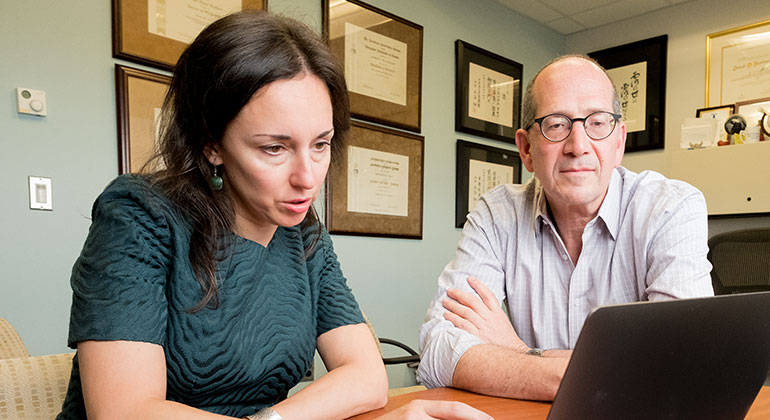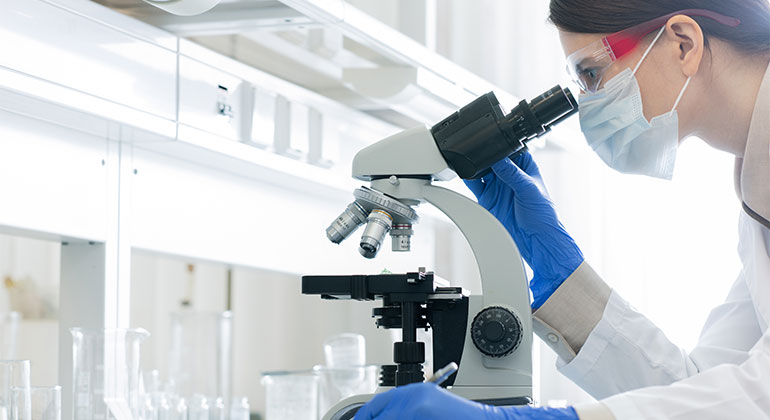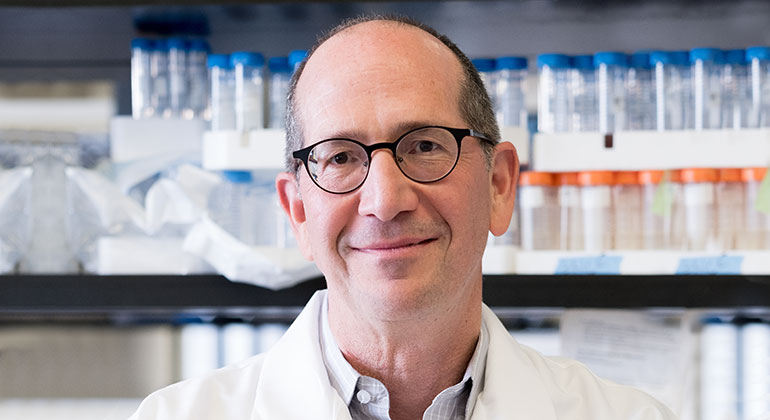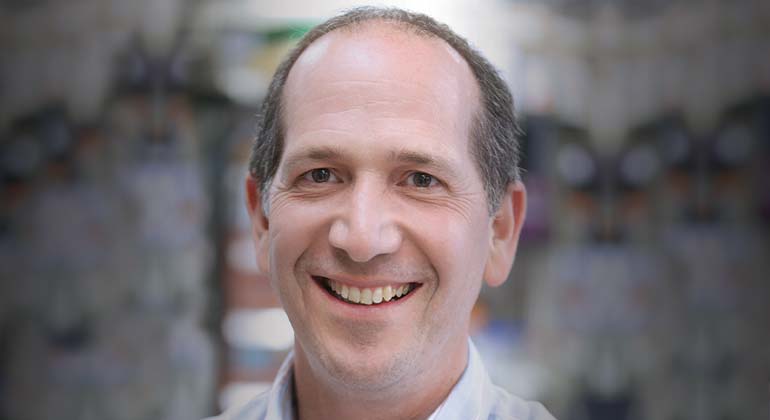Seaver Autism Center For Research and Treatment at Mount Sinai Launches First Drug Trial for ADNP Syndrome
Ketamine may provide hope for families affected by a rare disorder that is a leading genetic cause of autism

Researchers at the Seaver Autism Center for Research and Treatment at Mount Sinai have started recruiting participants for a new clinical trial to evaluate the safety, tolerability, and efficacy of a low dose of ketamine in children diagnosed with ADNP syndrome (also known as Helsmoortel-VanDerAa syndrome), a rare neurodevelopmental disorder caused by mutations in the activity dependent neuroprotective protein (ADNP) gene.
The ADNP gene affects brain formation, development, and function, and the protein produced from it helps control the expression of other genes. Individuals with the disorder produce roughly half of the proper amount of protein. ADNP mutations are one of the most common single-gene causes of autism spectrum disorder.
The potential of ketamine as a treatment modality for ADNP syndrome was identified by mediKanren, an artificial intelligence (AI) tool that scans medical literature and uses AI reasoning. Using that information, two parents of children with ADNP syndrome—Matt Davis, MD, and Sandra Sermone, founder of the ADNP Kids Research Foundation—began their own analysis by scouring medical literature and processing the results. They found several animal model studies that showed ketamine was able to boost ADNP production in brain cells. The parents presented the evidence and their hypothesis to Joseph Buxbaum, PhD, Director of the Seaver Autism Center, who agreed that this was a potentially viable approach.
The use of a precision medicine approach considers individual variability in genes and lifestyle for each person and enables researchers to more accurately predict which treatment and prevention strategies for a particular disease will work in which groups of people.
“If we can replicate the increase in ADNP protein production in humans, it could be a major breakthrough to help reduce negative effects of this devastating disorder,” said Alexander Kolevzon, MD, Clinical Director of the Seaver Autism Center.
The Phase 2a, single dose, open-label study is the first clinical trial for ADNP syndrome. The Seaver Autism Center will enroll 10 participants, ages 5 to 12, at The Mount Sinai Hospital. Participants will receive one low-dose infusion of ketamine for 40 minutes and be monitored for four weeks. At each clinic visit, participants will undergo safety monitoring, clinical evaluations, and biomarker studies using electrophysiology and eye tracking.
“We believe our precision medicine approach to rare disorders such as ADNP syndrome is the gateway to future therapeutics for idiopathic autism,” said Ana Kostic, PhD, Director of Drug Discovery and Development at the Seaver Autism Center.
Ketamine was approved for use in the United States in 1970. It is used in anesthesia and pain management, and recently as a treatment for depression. By repurposing an already approved drug such as ketamine, the regulatory approval process may be expedited. With positive results, this study could help lead to a treatment for ADNP syndrome years earlier than what would be possible when starting with a new compound.
“To date, ADNP syndrome has no FDA-approved treatment options and if the trial is successful, this could be the first viable treatment for children who suffer with this debilitating condition and have an urgent, unmet need,” said Ms. Sermone. “We are hopeful that ketamine may benefit not only ADNP Syndrome, but other forms of autism or related neurological conditions where upregulation of ADNP may be therapeutic. If so, that could open the door to help a much larger population of patients.”
About the Seaver Autism Center for Research and Treatment
The Seaver Autism Center is one of the most recognized institutions of its kind in the world because of its ability to translate breakthroughs in the lab to clinical trials that bring cutting-edge treatment to individuals affected by autism spectrum disorder (ASD) and associated neurodevelopmental disorders. We offer compassionate care, including assessment and behavioral health services, to children and families, as well as educational and community outreach programs. Founded in 1993 and located at the Icahn School of Medicine at Mount Sinai, families come from around the world to seek our services and the expert counsel of our team of scientists, researchers and clinicians.
For more information, visit: www.seaverautismcenter.org, or find the Seaver Autism Center on Facebook, Twitter and Instagram.
About the Mount Sinai Health System
Mount Sinai Health System is one of the largest academic medical systems in the New York metro area, with 48,000 employees working across seven hospitals, more than 400 outpatient practices, more than 600 research and clinical labs, a school of nursing, and a leading school of medicine and graduate education. Mount Sinai advances health for all people, everywhere, by taking on the most complex health care challenges of our time—discovering and applying new scientific learning and knowledge; developing safer, more effective treatments; educating the next generation of medical leaders and innovators; and supporting local communities by delivering high-quality care to all who need it.
Through the integration of its hospitals, labs, and schools, Mount Sinai offers comprehensive health care solutions from birth through geriatrics, leveraging innovative approaches such as artificial intelligence and informatics while keeping patients’ medical and emotional needs at the center of all treatment. The Health System includes approximately 9,000 primary and specialty care physicians and 10 free-standing joint-venture centers throughout the five boroughs of New York City, Westchester, Long Island, and Florida. Hospitals within the System are consistently ranked by Newsweek’s® “The World’s Best Smart Hospitals, Best in State Hospitals, World Best Hospitals and Best Specialty Hospitals” and by U.S. News & World Report's® “Best Hospitals” and “Best Children’s Hospitals.” The Mount Sinai Hospital is on the U.S. News & World Report® “Best Hospitals” Honor Roll for 2025-2026.
For more information, visit https://www.mountsinai.org or find Mount Sinai on Facebook, Instagram, LinkedIn, X, and YouTube.



